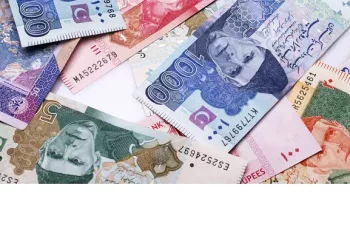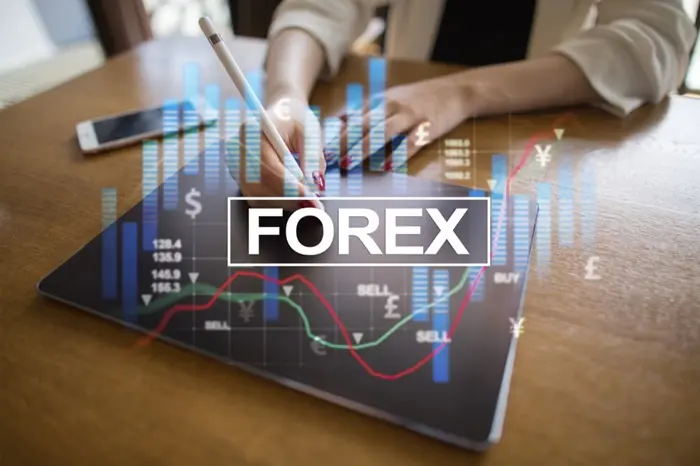In the world of finance, few professions are as mysterious and complex as that of a foreign exchange trader. Foreign exchange trading, also known as forex trading, involves buying and selling currencies in global markets. But forex trading is about much more than simply profiting from exchange rate fluctuations. It requires expertise, strategy, discipline, and a keen understanding of global economic forces.
In this article, we’ll take a deep dive into the role of a forex trader, explaining their responsibilities, the skills they need, and how to navigate the volatile currency markets. By the end of this article, you’ll have a comprehensive understanding of what it takes to be a forex trader, and why this career is both rewarding and challenging.
Understanding the Forex Market
Before we dive into the specifics of what a forex trader does, it’s important to first understand the forex market itself.
What is the forex market?
The forex market is the world’s largest and most liquid financial market. It is a global, decentralized market where currencies are traded. Unlike stock markets, which operate through centralized exchanges, the forex market operates on an over-the-counter (OTC) model, meaning that currency trades are conducted directly between two parties, usually through an electronic platform or over the phone.
The role of currency in forex trading
In forex trading, currencies are traded in pairs, such as the Euro/US Dollar (EUR/USD) or the British Pound/Japanese Yen (GBP/JPY). This means that when you buy one currency, you are also selling another. The value of one currency relative to another can be affected by a variety of factors, including economic data, geopolitical events, and market sentiment.
Forex traders: who are they?
Forex traders are individuals or institutions that buy and sell currencies in the foreign exchange market. Their goal is to profit from exchange rate fluctuations. These traders can range from small retail investors working from home to large institutional investors (including banks and hedge funds) that manage millions or even billions of dollars in assets.
Types of Forex Traders
Forex traders can be divided into different categories based on their trading style and goals. The main types of traders include:
Day Traders
Day traders buy and sell currencies within the same trading day. Their goal is to profit from small price fluctuations and close their positions before the market closes. Day traders need to make quick decisions and have a deep understanding of short-term market trends.
Swing Traders
Swing traders take a longer-term approach than day traders. They aim to profit from medium-term trends in currency prices and often hold positions for days or weeks. Swing traders need to have a deep understanding of technical analysis and market momentum.
Scalpers
Scalpers focus on making quick, small profits by executing a large number of trades throughout the day. They look for small price fluctuations and close their positions almost immediately. Scalping requires extreme precision, speed, and the ability to act under pressure.
Long-term traders
Long-term traders trade over the longest time horizon. They hold positions for weeks, months, or even years, aiming to profit from long-term market trends. Long-term trading requires a deep understanding of macroeconomic factors and a strong tolerance for market volatility.
Key Responsibilities of a Forex Trader
The day-to-day responsibilities of a Forex trader revolve around analyzing the currency markets, executing trades, and managing risk. While each trader may work slightly differently, the core responsibilities are the same.
Market Analysis
In order to make smart trading decisions, Forex traders must stay informed about market dynamics. This includes monitoring economic data, news, and geopolitical events that may affect currency prices. Traders use fundamental analysis and technical analysis to interpret market data and make predictions.
Fundamental Analysis
Fundamental analysis involves studying economic indicators such as GDP growth, inflation, unemployment, and interest rates. By understanding these indicators, traders can assess the economic strength of a country and predict how it may affect the value of its currency.
Technical Analysis
Technical analysis involves analyzing historical price data and using chart patterns and technical indicators to predict future price movements. Traders look at trends, support and resistance levels, and price action to decide when to enter and exit a trade.
Executing Trades
Executing trades is a core function of a Forex trader. Once a trader has analyzed the market and spotted an opportunity, they must decide when and how to enter the trade. This includes setting the right order type, such as a market order, limit order, or stop order, so that the trade is executed at the desired price.
Risk Management
One of the most important aspects of being a successful forex trader is risk management. The forex market is volatile, and if traders do not manage risk properly, they could face large losses. Traders use a variety of tools to reduce risk, including setting stop-loss orders, limiting the amount of capital risked per trade, and diversifying their portfolio of currency pairs.
Position Sizing
Position sizing refers to the amount of capital a trader allocates to each trade. Proper position sizing ensures that a trader does not take on too much risk on any single trade and can withstand periodic losses. Many traders follow the “2% rule,” which states that no more than 2% of a trader’s total capital should be risked on a single trade.
Leverage Management
Leverage is a tool that allows forex traders to control positions that are larger than their initial investment. While leverage can magnify profits, it also increases the possibility of large losses. Skilled forex traders must understand how to use leverage appropriately to avoid overexposure to risk.
Skills and Qualities of a Forex Trader
Being a successful Forex trader requires technical knowledge, personal qualities, and emotional control. Here are some of the key skills and qualities that contribute to success in this industry:
Analytical Skills
Forex traders need to be able to analyze large amounts of data quickly. Whether using technical analysis, fundamental analysis, or a combination of both, they must be able to make decisions based on complex information. Strong analytical skills are essential to identifying trading opportunities and avoiding pitfalls.
Discipline and Patience
Discipline is essential for Forex traders, especially in extremely volatile markets. Traders must stick to their trading strategies and avoid acting impulsively. Patience is also essential, as traders must wait for the right conditions to enter the market and must be prepared to hold positions for the long term.
Emotional Control
The emotional element of trading is one of the biggest challenges that traders face. The Forex market can experience dramatic price swings, which can lead to fear, greed, or frustration. Successful traders know how to manage emotions and stay calm under pressure.
Adaptability
The Forex market is ever-changing, and a strategy that works today may not work tomorrow. Traders must be adaptable and willing to adjust their strategies based on changing market conditions. This requires continuous learning and a willingness to evolve with the market.
The Rewards and Challenges of Forex Trading
Forex trading can be highly rewarding, but it also comes with its own set of challenges. Here are some of the rewards and challenges faced by forex traders.
Rewards
Potential for High Profits: Because of the leverage involved in forex trading, traders can potentially earn large profits from relatively small market movements.
24/5 Market Access: The forex market is open 24 hours a day, five days a week, which means that traders can work at any time of the day or night, making it ideal for those who need flexibility.
Diverse Opportunities: The forex market offers a wide range of currency pairs to trade, allowing traders to diversify their portfolios and minimize risk.
Challenges
High Risk: The potential for high rewards comes with high risks. Forex trading can lead to significant losses, particularly when leverage is involved.
Market Volatility: The forex market is known for its volatility, which can lead to sudden and unpredictable price movements.
Emotional Stress: The pressure to make profitable trades and manage risk can lead to emotional stress, which can negatively impact decision-making.
Conclusion
Being a forex trader is more than just buying and selling currencies – it’s about understanding the markets, analyzing data, managing risk, and controlling emotions. It takes analytical skills, self-discipline, and adaptability to be successful. While the rewards of forex trading can be lucrative, the risks and challenges are equally great.
Forex traders play a vital role in the global financial system, facilitating international trade, investment, and currency exchange. Whether you’re a newbie looking to enter the world of forex trading or an experienced trader looking to hone your skills, understanding the core of the profession is key to success. If you’re ready for the challenges of the forex markets, mastering the art of forex trading may open the door to a rewarding career.
Related topics:
































